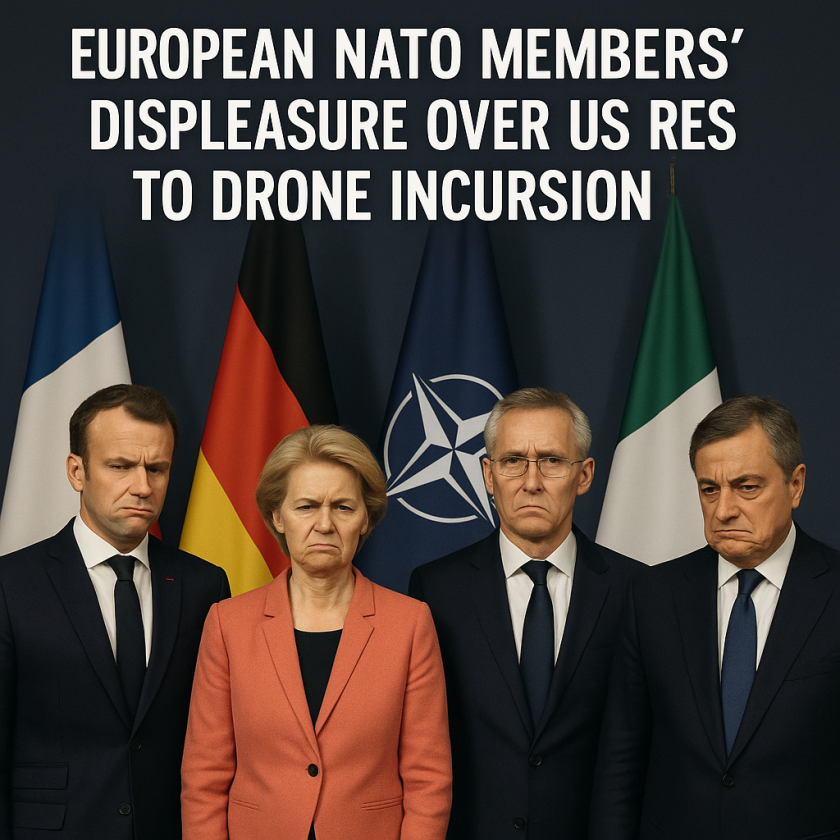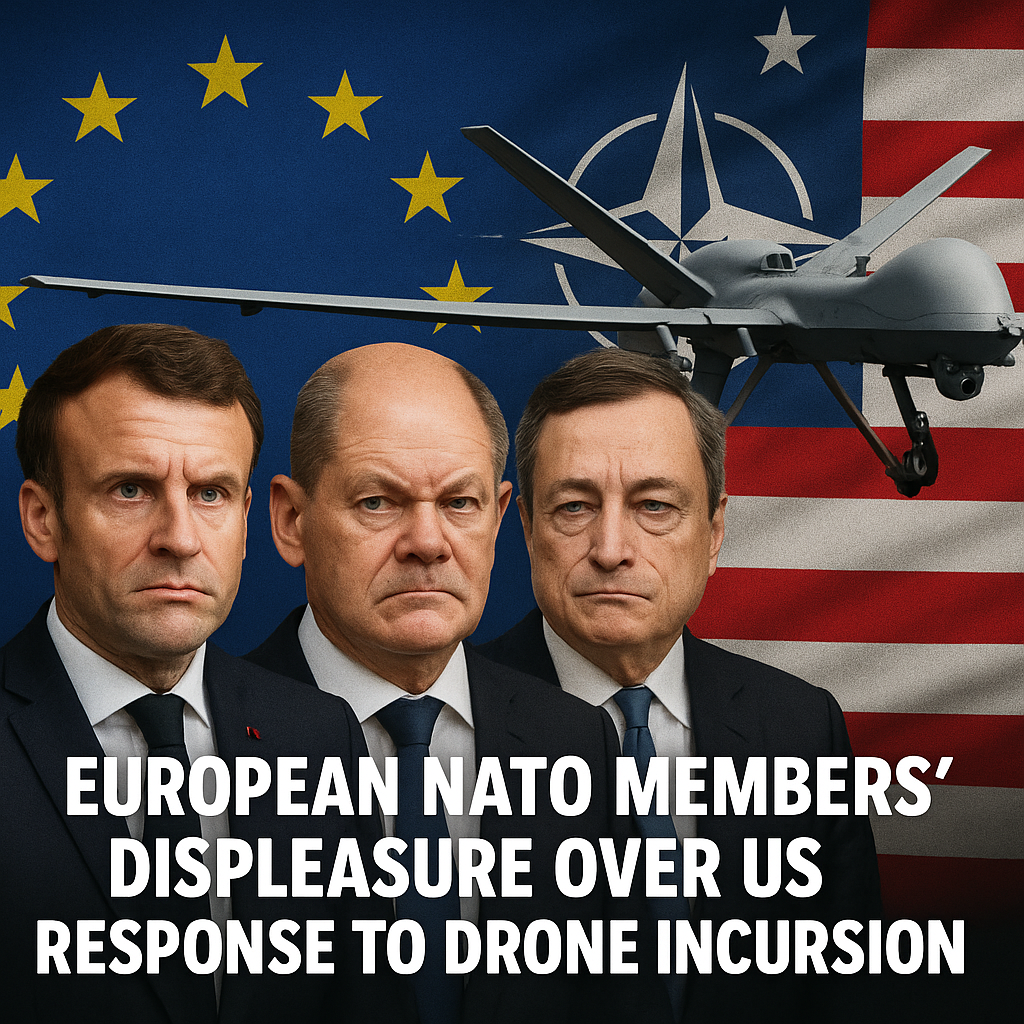European NATO Members’ Displeasure Over US Response to Drone Incursion
European NATO Members’ Displeasure Over US Response to Drone Incursion
European NATO members are expressing dissatisfaction over the perceived lack of urgency and transparency in the United States’ response to a recent drone incursion. This situation highlights the complexities in transatlantic relations, particularly in matters of defense and security.
Background of the Incident

The drone incursion in question involved unauthorized surveillance drones operating near highly sensitive military installations in Europe. Reports indicate that these drones, believed to be of foreign origin, could pose serious security risks. NATO allies were quick to respond to the threat, but they felt the U.S. response was inadequate and failed to demonstrate the commitment typically expected from a leading NATO member.
Reactions from European Leaders
Multiple European officials have publicly voiced their concerns regarding the U.S. reaction. For instance, leadership from countries such as Germany and France characterized the response as sluggish. “In light of the potential risks involved, we expected a more decisive and coordinated approach,” stated a senior German defense official.
Europeans argue that the U.S. failure to act swiftly undermines the trust required for effective collective defense strategies. Concerns have been raised not merely about the incident itself, but also about the broader implications for NATO unity. Analysts from various think tanks have suggested that if European nations perceive the U.S. as neglecting their security interests, it could lead to significant rifts within the alliance.
Diverging Perspectives
While some European leaders are vocally critical, there are also voices that caution against overly combative rhetoric. “Our alliance has weathered storms before; this is an opportunity for dialogue rather than division,” remarked a well-placed diplomat from a smaller NATO member country. These diplomats emphasize the need for collaborative solutions rather than finger-pointing, which could escalate tensions among allies.
Notably, some strategic experts argue that the drone incursion itself may have been a testing episode designed to gauge NATO’s alertness and cohesion. “Such events are not uncommon, and responses can vary dramatically based on internal politics and the external geopolitical climate,” noted a military strategist. This perspective highlights the need for patience and a long-term view on transatlantic defense cooperation.
Key Takeaways
– Trust and Cooperation: The drone incursion underscores the delicate nature of trust among NATO allies. An effective response is crucial to reassuring European partners about U.S. commitment to collective defense.
– Diplomatic Dialogue: Constructive discussions might be more beneficial than outright criticism. Resolving discrepancies in response measures could be approached through diplomatic avenues rather than escalating tensions.
– Future Implications: The looming question remains whether this incident signals a shift in NATO dynamics. If European nations increasingly feel sidelined by U.S. actions, it could push them to seek alternative security arrangements.
In conclusion, the dissatisfaction among European NATO members regarding the U.S. response to the drone incursion is multifaceted. While there are urgent calls for a robust response to ensure security, there is also a growing recognition that effective communication and collaborative efforts are essential for maintaining the integrity of the alliance. As NATO navigates these challenges, the focus should remain on unity and a fair assessment of threats collectively faced by member states.






































